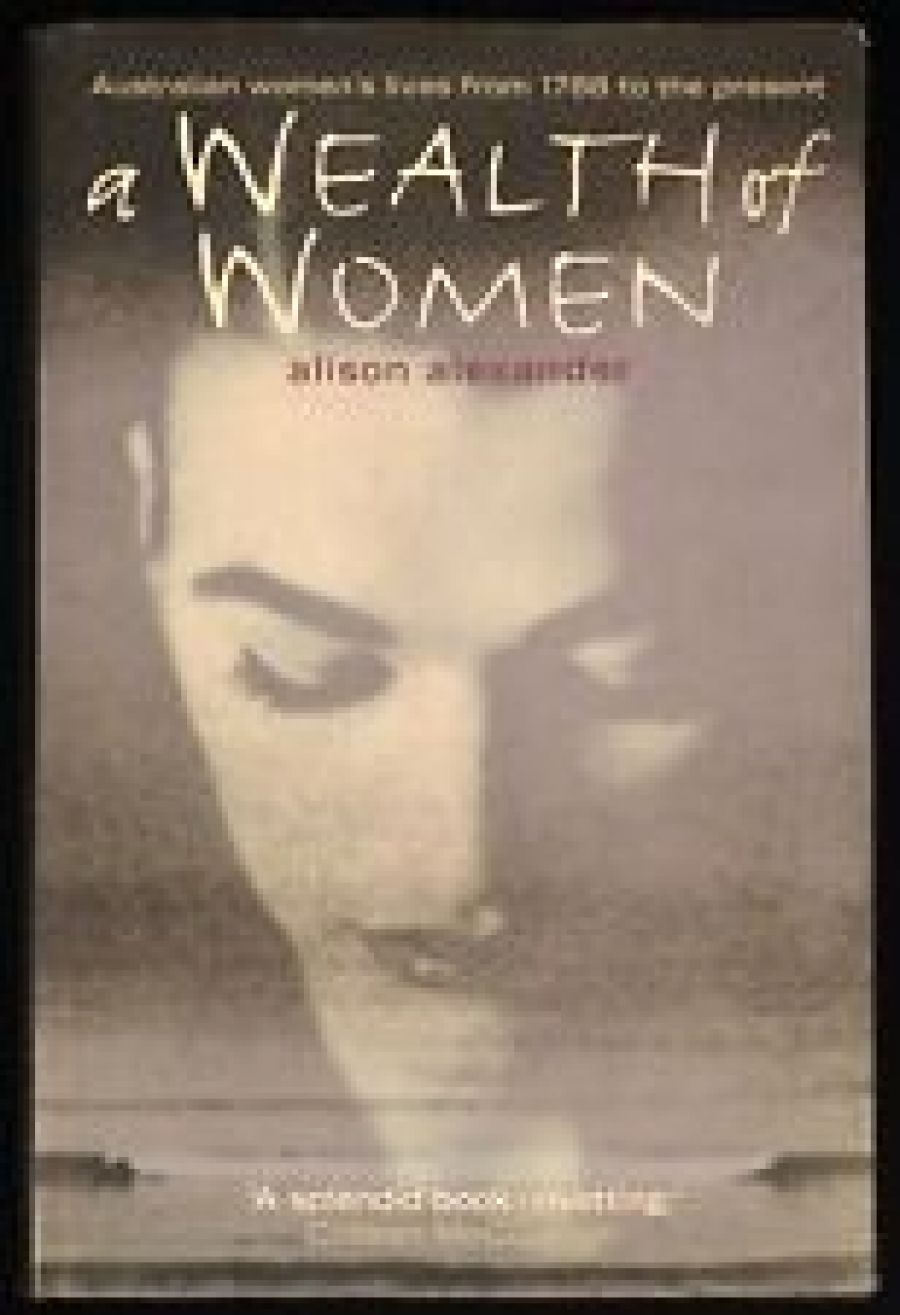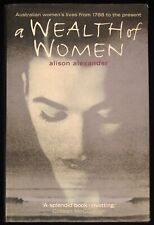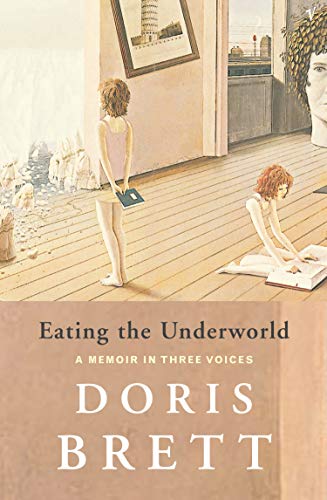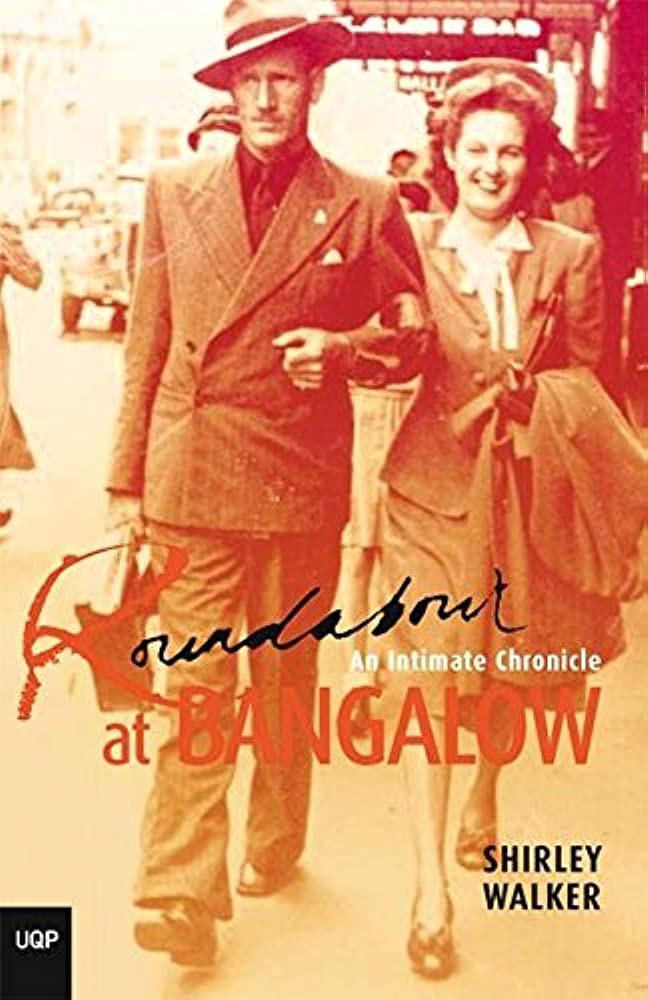
- Free Article: No
- Contents Category: Memoir
- Review Article: Yes
- Article Title: Women's Lives
- Online Only: No
- Custom Highlight Text: Shirley Walker’s autobiography, Roundabout at Bangalow, is a remarkably rich book and a significant addition to the distinctive group of life stories that continue to fascinate Australian readers. It seems that at least once a year a striking memoir appears that strangely alters our relationship with the national past. These books are more than books. They are transforming cultural events. Inserting their stories into the generalised narratives of historians, autobiographies such as Sally Morgan’s My Place, A.B. Facey’s A Fortunate Life, Bernard Smith’s The Boy Adeodatus, or Andrew Riemer’s Inside Outside appropriate the past in new and compelling forms. To use Raymond Williams’s phrase, they make the past ‘knowable’, and they do so with an immediacy available to no other form of writing. For this reason alone, they inevitably win a large popular readership.
- Book 1 Title: A Wealth of Women
- Book 1 Subtitle: Australian women’s lives
- Book 1 Biblio: Duffy & Snellgrove, $30 pb, 310 pp
- Book 1 Cover Small (400 x 600):

- Book 2 Title: Eating the Underworld
- Book 2 Subtitle: A memoir in three voices
- Book 2 Biblio: Vintage, $24.95 pb, 413 pp
- Book 2 Cover Small (400 x 600):

- Book 3 Title: Roundabout at Bangalow
- Book 3 Subtitle: An intimate chronicle
- Book 3 Biblio: UQP, $30 pb, 232 pp
- Book 3 Cover Small (400 x 600):

Walker’s story is the main thread of the narrative, but it is subtly interwoven with other narratives, which are mainly those of people whose pasts still intersect with the present, but also narratives of places, cultures, towns and regions. Acutely sensitive to the persisting impact of historical events – not just such massive events as war (though war plays a large part in this story) but also relatively obscure and minor events – Walker traces the flow of effects through successive generations. For example, a father’s death by lightning strike can, she maintains, lead the members of a family to ‘cherish a deep resentment, a sense of cosmic injustice and, at the same time, a strange pride at having been singled out for such a startling stroke of heavenly malice’.
Such a comprehensive, ironic perspective on the past is necessarily attained in maturity and after a lifetime of reading in both literature and history. As far as this goes, Roundabout at Bangalow has obvious affinities with The Boy Adeodatus, Kathleen Fitzpatrick’s Solid Bluestone Foundations and even Inside Outside. But there are important differences. Smith, Fitzpatrick and Riemer present their younger selves as largely unchanging central witnesses to external change. When Riemer watches himself as an uneasy, gaudily dressed ten-year-old in a school playground, surrounded by Australian children speaking an incomprehensible language, he does so as the urbane, wholly acculturated adult. Irony is reserved for those unable to understand the newcomer. But Walker is also finely sensitive to the mutable nature of the earlier self, or rather selves, for she has, in effect, three markedly different lives. She progresses from fearful child, enmeshed in the futile struggle between incompatible parents, to farmer’s wife battling a hostile environment, to respected researcher and university teacher. And much of the distinctive quality of this autobiography stems from the narrator’s retrospective, wryly sympathetic perspective on the younger, unconfident self.
And this leads to another difference from the earlier autobiographies. Born in 1927 into a rural family with the usual low horizons of expectation, especially for women, Walker’s development was conditional on changes within the general culture. And this altered slowly. Her descriptions of the cultural confinements imposed on both men and women, but especially women, will delight feminist readers. Absurd, bizarre and even farcical by today’s standards, they are relived here in all their crippling effects. Meanwhile, further back in time but still vivid in family memory are the even more crippling experiences of earlier generations. In this story, culture not only matters, it matters most, subtly shaping individual stories according to communal imperatives. For this reason, I imagine, Walker continually inserts italicised phrases, words and even extended sections into the main narrative. Eroded clichés, they are a shorthand way of evoking the power of group thought.
Doris Brett’s Eating the Underworld is the intensely gripping and disturbing story of the author’s battle with ovarian cancer. Few readers, I imagine, will be able to put this book down. Brett tells this story in three different ways: in the form of a diary recording the day-by-day struggle with the terrible disease; in several poems inspired by that struggle; and in a third-person recounting of familiar myths or fairy stories. The physical journey is also a psychic one that is no less terrible, and it is one that Brett, as psychotherapist and poet, is brilliantly equipped to describe. Discovering the invasion of such a disease is to suffer shipwreck. If the physicians are at home in the kingdom of illness, their patients are cast ashore on it ‘with only the clothes we are wearing’. Brett’s narrative and poems vividly initiate the reader into the searing experiences of physical vulnerability, meanwhile recording the stages of the inner journey that the disease authored. Sensitive to the hidden meanings of words, Brett teases out the entomology of carcinoma. Cancer is a hard growth in more senses than one, forcing the sufferer to set out on a quest that leads to distant territories and into shadowy places previously too frightening to enter. Brett describes it as a marker event, delineating a ‘before’ and an ‘after’: ‘It forces us to define and redefine ourselves. And then, because the experience of cancer is an extended process and not a static event, it forces us to do it again and again.’
To set out on this journey is to enter the underworld like the mythical hero – a unique, life-transforming experience. For the fruit gained from this underworld is a new, deeper knowledge of the self and of others.
After an initial victory over the disease and a return to normalcy, the cancer recurs, requiring renewed, more aggressive treatment. Eventually, Brett welcomes the recurrence, aware that the inner journey she had embarked on was not yet complete. It is here that poetry and myth intervene most successfully, exploring the wordless world of inner experience. For example, her poem ‘Chemotherapy’, comparing the suffering self to an autumn tree, ‘unfeathering, unfeathering, / bald as an egg, a kind of a nun / of the new beginnings’, gestures towards the hard truths which she will be led to face and even embrace: ‘Wishing in leaves / in drifts and at last, seeing / the difficult trick – how to love / the cold, clear heart of winter.’
Readers of Lily Brett’s writing will be familiar with the fact that the two sisters’ parents were survivors of the Holocaust. In Eating the Underworld, Rachel, the interpreter of myth who is also, it seems, a surrogate for Doris, describes the absence of God in the family home: ‘He had died in the concentration camps – from where her parents had emerged, skeletal, but somehow alive.’ For the parents, the births of two daughters were miraculous events. They were princesses in the parents’ dream of the fairy-tale life that was supposed to begin after the horrors of the Holocaust. But Eating the Underworld progressively unfolds a story that contains the real and terrible aspects of fairy tales that adults prefer to forget. And it is part of Rachel’s purpose to reveal the more chilling, unpleasant associations of fairy story with real life. If Doris is aware of the subjectivity of memory which might superficially account for the stark differences between her memory of her mother and Lily’s, the struggle with a life-threatening disease compels her to disinter her own truths and honour her own voice. Demanding even more courage than the battle with the disease, it will force her to confront many old ghosts from the past and to embrace bitter truths about family relationships. As brutally honest and lacking in self-pity as it is sensitively developed, Doris Brett’s story of her dance with cancer and consequent ‘loss of innocence’ reminds us that the effects of the Holocaust, though distanced in time and place, are still potently, if subtly, with us.
Alison Alexander’s A Wealth of Women is a chronological potpourri of the lives of Australian women from 1788 to the present. Accompanied by numerous photographs and cartoons, as well as simple schedules of statistics, it is a book for the browser but not for the serious historian of women’s experience. Documentation is almost completely negligible in the text, although it is possible, with some effort, to disinter information from the bibliography. Within the text, however, only the narrator’s voice authenticates the numerous biographies or snapshots of life. The accompanying narrative is also unfortunately pedestrian and even banal, too often a statement of the obvious.


Comments powered by CComment